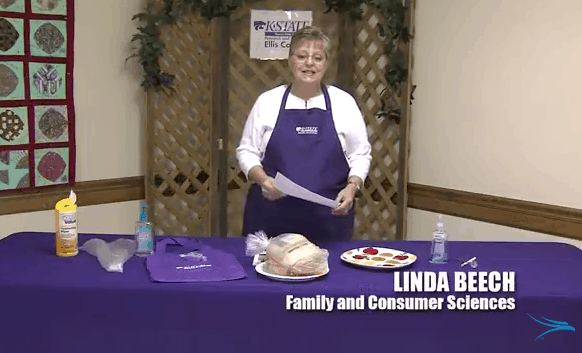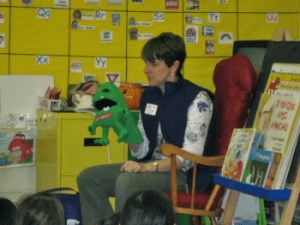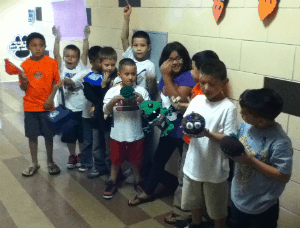 People in Ellis County, Kansas, will have a hard time missing information from the Don’t Wing It (DWI) food safety campaign thanks to Linda Beech, their local family and consumer sciences extension agent.
People in Ellis County, Kansas, will have a hard time missing information from the Don’t Wing It (DWI) food safety campaign thanks to Linda Beech, their local family and consumer sciences extension agent.
Don’t Wing It Is Ready for Action
Linda has been busy spreading the newly released consumer food safety information ever since participating in the Don’t Wing It webinar in April. This well-designed approach to poultry handling information, plus the new research, packaged together especially for BAC Fighters, makes it easy to spread the word.
Science Sells
She especially values the science behind the program – for example, the research on how people handle shopping carts in a way that can spread harmful bacteria, and the potential concentration of Campylobacter in just one drop of chicken juice, which is enough to make you sick.
Linda says that these point-by-point science references help her to teach in a way that people take seriously.

Spreading Don’t Wing It
She has written articles on how to prevent foodborne illness using the information in DWI for her local paper’s print and online versions. Linda has also posted on Facebook and spoken about Don’t Wing It on local radio. She featured DWI in the general county extension newsletter as well as one focused on seniors. Her mini-cable TV show about DWI reaches up to 10,000 subscribers in a three-county area. She uses the #DontWingIt hashtag in her Facebook posts about her own chicken BBQ!
Recipes with Food Safety Prompts
Linda is using the research on the success of adding food safety steps into recipe directions to beef up the recipes she uses in her newsletter. She convinced others in county extension of the value of this as well.
Facebook Comments Show Results
The comments to Linda’s posts on the extension FB page show how her outreach raises food safety awareness:
- Ok, I’m convinced… No more giving my chicken a bath.
- Great job, Linda! While I already follow most of food safety practices in your video, including cleaning the shopping cart handles, I never really connected OTHER PEOPLE’s drippy chicken packages not in a plastic bag to food safety in MY kitchen. This raises my awareness about what I should do to be responsible about food safety. Other things I do, not in your video…….I sanitize the front corners of my shopping cart, because sometimes I pull the cart instead of always pushing it; and I place meat packages in the bottom basket of the cart in the store when I have a 2 tier cart, similar to storing chicken on the lowest shelf in the fridge.
Linda’s newspaper column can be found here.
Her cable TV video is here.
Check out more Don’t Wing It resources.
Share your story with us.
 ne of the best ways to solidify the new strategies you learn is to apply them and teach them.
ne of the best ways to solidify the new strategies you learn is to apply them and teach them.


